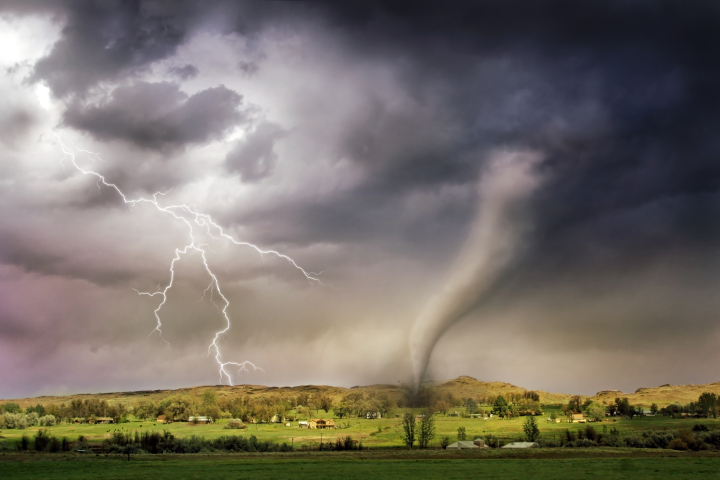Using Machine Learning For Equitable Weather Forecasting in a Changing Climate
From monitoring daily temperatures to predicting natural disasters, weather forecasting relies on data collection from millions of sensors.
However, proximity is key to accuracy, and the locations of these sensors are somewhat inequitable. For example, there are a lot of sensors around airports and wealthier areas, while marginalized communities have historically had fewer sensors, which could potentially result in less accurate forecasts.
Many of these marginalized communities struggle to recover from extreme weather events, and are expected to experience disproportionate impacts from climate change in coming years.
Two UMD researchers are pursuing a solution to this challenge by using machine learning to transform weather forecasting and give marginalized communities better weather prediction tools.
Maria Molina, an assistant professor of atmospheric and oceanic science, and Christopher Metzler, an assistant professor of computer science, are collaborating on how to use machine learning for weather forecasting in an ethical, fair and trustworthy way.
The two researchers who hold affiliation with the prestigious University of Maryland Institute for Advanced Computer Studies (UMIACS) have a goal to develop equitable algorithms and strategies to place sensors in better locations for underserved populations around the country.
Their work is funded by a $500,000 Team Project Grant from UMD’s Grand Challenges Grants Program, a $30 million initiative to support research that offers promising solutions to emerging societal issues like climate change, social injustice, global health and education disparities.
The funding will allow the duo to hire a graduate student to work on the project and collaborate more with the Department of Computer Science, says Molina, who was formerly a meteorologist on Fox News before pursuing her doctorate in Earth and Ecosystem Science.
Metzler hopes that this project will bring systemic inequalities in environmental science to light and provide a roadmap for better strategies moving forward.
—Story by Ethan Cannistra, UMIACS communications group
The Department welcomes comments, suggestions and corrections. Send email to editor [-at-] cs [dot] umd [dot] edu.
